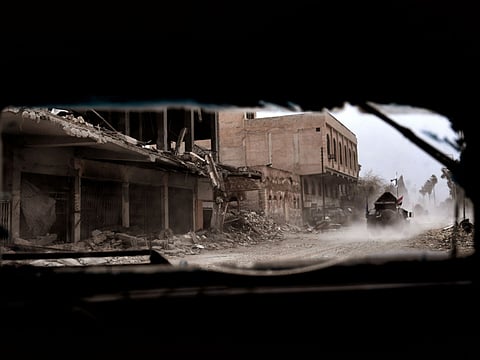Arabs seek glimmer of hope in dark days
The people who ousted colonial powers failed to unite in building their nations

The situation in most Arab countries, on the official level, is extremely pathetic and miserable, especially after realising the impossibility of changing it. The overall picture seems very gloomy, especially with political, economic and living conditions deteriorating further.
Despite this dark picture, some are optimistic as they still see a glimmer of hope amid this wreckage and deep darkness. One has the right to stay optimistic through tough times, but one has to be logical and rational too. Otherwise, this can be called irrational optimism. This makes one wonder: does it make sense to be optimistic when there is no reason to be optimistic? In fact, there is no room for this kind of optimism in the Arab world, especially with the Arab region hitting rock bottom.
Ironically, some Arabs are optimistic about the return of colonialism in Arab countries! This has even become a familiar wish by some Arabs as the situation became unbearable and they reached the end of their tether. Now, Arabs never stop complaining about the intolerable living, emotional and social conditions, to the extent that they only believe in a divine miracle to save the Arab world from its misery. However, it is impossible to see such a miracle happen as heavenly miracles ceased almost 1,500 years ago, since the final revelation to mankind through the Prophet Mohammad (Peace Be Upon Him) and the Holy Quran, the last scripture revealed by Almighty Allah.
What would some Arabs think when they dream of the return of colonialism? Is it because they want to revive the glory of the Arabs in the 1950s and 1960s when they were united against a common enemy and shared a common destiny and goal, during their independence struggle? This brings to mind events that happened in the Arab world after the end of the Second World War — a period when they craved independence, a dream that would only come true after the emergence of a national liberation movement across the Arab region.
Back then, the Arab masses were highly enthusiastic about uprooting colonial powers and establishing their own national independent states, especially after the anti-colonial liberation rhetoric had gained a powerful echo in African Arab countries where people’s passions were ignited by anti-imperialist nationalist sentiments. Arabs succeeded in forcing out colonial powers and achieving dominance over their territories, but failed to unite their forces when it came to the establishment of their national states. They fought over state constitutions, the form of ruling regimes and democracy. Each party had its own vision, considering it to be the absolute truth, which ultimately led to power struggles within national parties and between comrades that fought together against colonialism.
This led to the emergence of political leaders who held onto power — a period that ended with power monopoly, resulting in a situation today that makes it appear as if they were not united in the face of colonial powers. This explains why some Arabs prefer the return of colonialism in the Arab region — a state of nostalgia and longing to those days when Arabs were united. Apparently, they want to experience the defiance and national struggle against a common enemy.
Suffice it to say, colonialism, in its old face, will not come back to the region. In fact, colonialism truly exists in our region, but with a new and modern face. However, we have lost the common language and have failed to rise up to the challenge and the need to fight against the new colonial project using the same tools used against us. Today the Arab world is already divided along ethnic, domestic and cultural lines and clashing interests, with each country having its own battle and enemy. The common goal no longer exists and the Arab world’s one enemy has evolved to become several enemies, each moving in different directions.
Mohammad Hassan Al Harbi is a renowned columnist and author whose writings cover various fields ranging from media studies to education. He has worked in various UAE media outlets as well as the banking sector. He holds a master’s degree in media and journalism.



